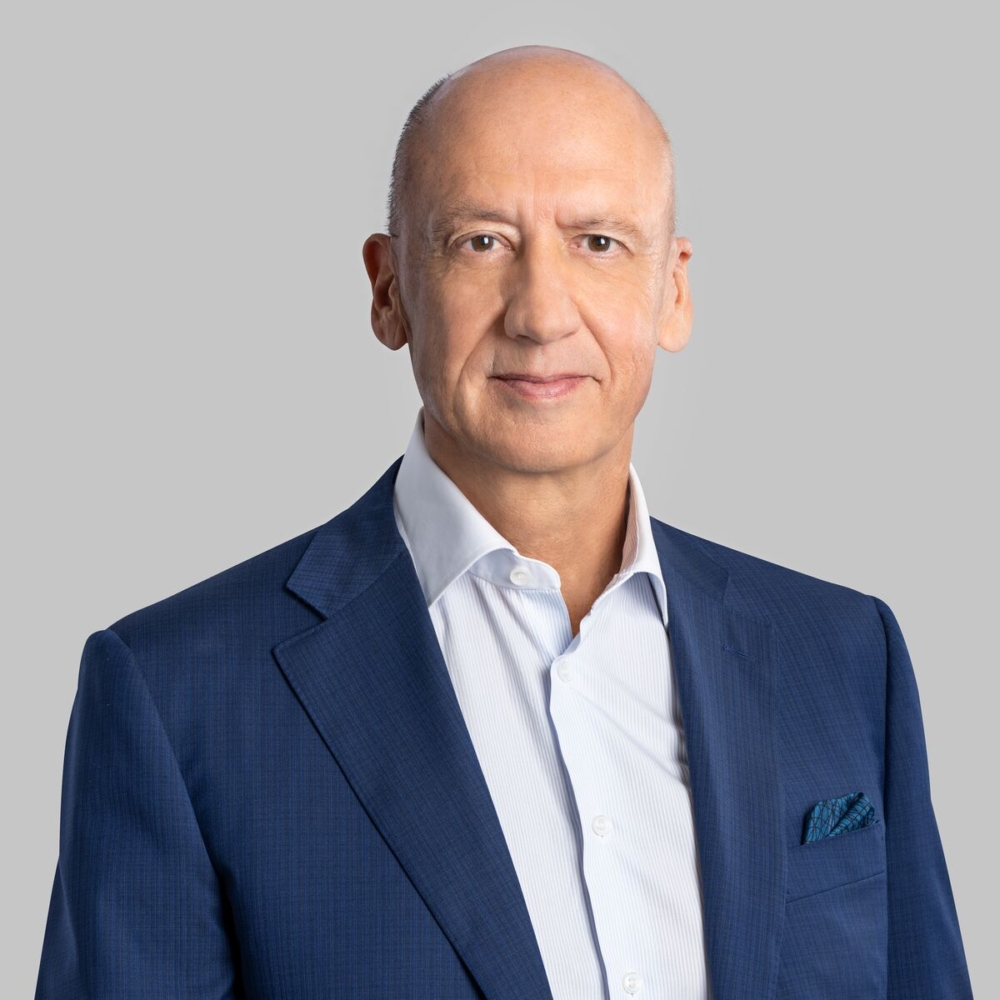Stephan Crétier
Class of 2025
- Founder, Chairman, President and CEO GardaWorld

Failure is not the opposite of success, but a necessary part of it. What matters is perseverance and the willingness to own both the good and the bad.
Born and raised in Laval, Quebec, in the Saint-Vincent-de-Paul neighbourhood—an area best known for housing one of Canada's largest prisons—Stephan Crétier grew up very much in the shadow of prison walls. As a young boy, those walls served as the backdrop for neighbourhood baseball games, where hitting a home run often meant the ball would sail over into the prison grounds, much to the guards’ dismay.
Stephan was raised by immigrant parents who arrived in Canada in the late 1950s seeking a better life. His father worked in restaurants before becoming a union leader. His mother was an esthetician who supported the family by doing nails for decades. Stephan was just 20 when his father passed away, leaving his mother to carry the family forward. Today, she is in her nineties and continues to embody perseverance and optimism, traits she passed on to her son. Stephan often credits his mother for instilling in him the ability to see the glass half full and to persevere in the face of challenges.
Growing up in the neighbourhood was not always easy. His family’s home, purchased for just $6,000, was situated in what could be described as a rough part of town. In the early 1970s, when Quebec’s separatist movement was on the rise, his father insisted he learn English and enrolled him in an English-language school. Stephan quickly found himself one of only a handful of francophones among 2,000 anglophone students. The experience was rough. He recalls having to fight, sometimes literally, to earn respect and survive in that environment. This forged in him a fighter’s mentality and an instinct not to seek out conflict, but to stand his ground and persevere. That mindset later became a cornerstone of his entrepreneurial drive.
CAREER
Stephan’s first job as a teenager was not on the baseball field as a player, but as an umpire. At the age of 14, he began officiating games for younger kids, and by 20, he was umpiring at international tournaments, including at a World Cup final between the United States and Cuba. He was scouted by Major League Baseball as an umpire and invited to training camp in Florida. For a time, he pursued an umpiring career in both amateur and professional baseball. However, by 25, he chose to step away, sensing the uncertainty of long-term prospects in umpiring and wanting greater stability.
Stephan’s first forays into business were modest but telling. At just 13, he was selling firecrackers at school. While his ventures hinted at an entrepreneurial spark, his parents encouraged him to pursue secure employment. For a while, he followed that path, working for the City of Laval as a civil servant with the goal of one day securing a permanent, stable job. But when offered the security he had long thought he wanted, he surprised himself by saying no. That choice marked a turning point, and he began to more seriously lean into entrepreneurship.
His professional break came when a recruiter placed him in the security industry – a field he initially knew little about. He accepted a role at a small, family-run security firm in Quebec City. Over five years, he helped multiply its revenues, only to discover that the owner had no interest in growth or shared leadership. Faced with the prospect of waiting decades for a payout – if at all – Stephan made a life-changing choice. At 30, alongside his partner and now wife, Stéphany, he took a second mortgage on their home, sold his sports car, and invested $25,000 to launch his own security company. The early years were lean – he recalls being “technically bankrupt” – but the business steadily grew and revenues increased significantly in the years that followed. Today, GardaWorld has grown into a global leader, generating over $8 billion in revenue and employing 132,000 people worldwide.
The road to today was anything but smooth. The company weathered constant financial strain in its first decade. Stephan tells stories of bailiffs arriving at his door on Saturdays at the behest of banks, eager to make his struggles public. He remembers the infamous Quebec ice storm, when power was out across the province, but his office stayed lit thanks to its proximity to a prison. That crisis tested his small team’s determination, forcing them to scale. Payroll loomed, with no line of credit, and he resorted to tracking down a client on vacation to secure the cheque that kept the company afloat. These experiences cemented his belief that success is not about avoiding failure, but about persevering through it.
WHAT I’VE LEARNED
Stephan often describes himself as both courageous and a little crazy, willing to take risks others would not. For him, the key has always been focusing on the “end game.” This relentless focus has enabled him not only to build GardaWorld but also grow three other global champions in AI enabled security technologies, integrated risk management, and cash automation solutions. To him, success means never losing sight of the ultimate goal, no matter the setbacks along the way.
At the heart of his leadership philosophy is people. With a background in industrial relations from the University of Montreal and later completing a MBA program while in the U.S., he has always prioritized building strong teams. Like a baseball manager shaping a winning lineup, he believes in continuously scouting talent and nurturing leaders. Even today, he interviews people weekly, whether a position is available or not, convinced that strong lineups win championships. His greatest pride is not just in building a global business, but in building a world-class team that shares his drive, values, and appetite for growth.
Despite his success, Stephan emphasizes that failure is an essential part of achieving success. He often references baseball, noting that a batting average of .300—meaning failure two out of three times—still marks you as one of the best players in the game. His message to young people, and especially to Horatio Alger Scholars, is clear – failure is not the opposite of success, but a necessary part of it. What matters is perseverance and the willingness to own both the good and the bad.
Today, as a member of the Horatio Alger Association of Canada, Stephan sees his story as a way to give back. For him, being welcomed into the Association is both an honour and a responsibility to inspire others, celebrate the spirit of entrepreneurship, and show that with resilience, hard work, and optimism, everything is possible.
